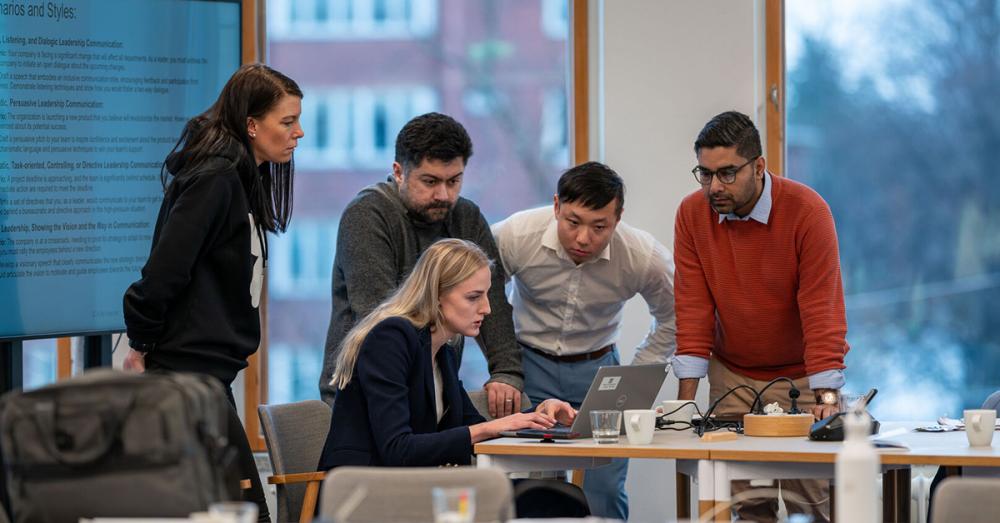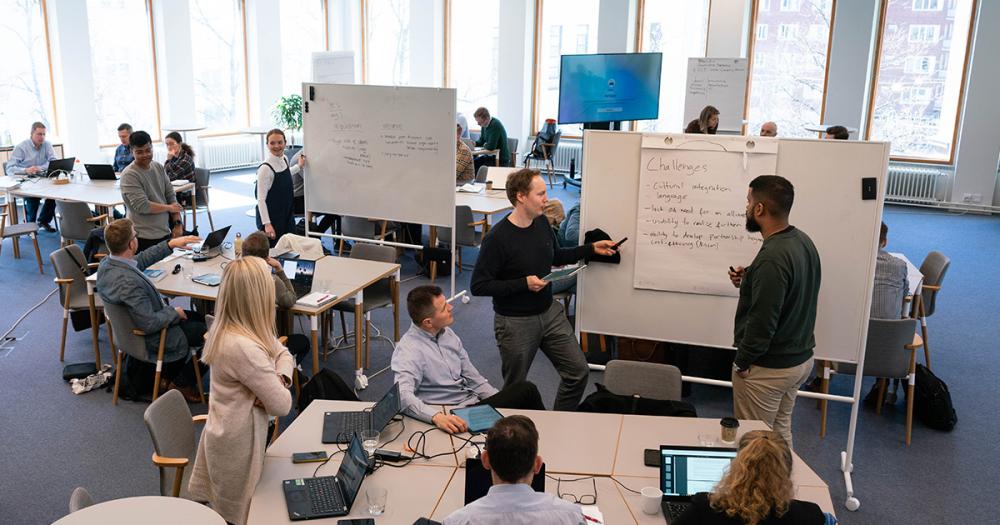There’s no question about it – scripts and programs have become the new norm in our everyday life. Gone are the days when it was enough to know that household machinery and devices operate according to certain, if hazy, laws of physics and mechanics. Instead, we are now facing an onslaught of new information, and perhaps even more mystifying concepts, which allow us to create ambitious lighting schedules for our home through an app, and allow a ring to track our movements and body temperature 24/7.
Outside the home, the applications of artificial intelligence, machine learning, and data analytics have been rapidly transforming most industries, even those with traditionally non-software services such as finance and health care. Companies are becoming increasingly reliant on computer code, and a lack of the required basic understanding and skillsets in programming could be a serious handicap in any progressive business.
There won’t be an end to the proliferation of code and the need for programmers in the foreseeable future."
The potential consequences of this and what it could mean for global economic competitiveness have urged legislators and leaders to turn their gaze to education. Several states in the US have gone as far as passing bills allowing computer coding credits to replace those of foreign language studies. Apple CEO Tim Cook likewise suggested in a Quarz magazine interview that in this day and age knowing code is possibly more important than learning a second language. Here in Finland, the latest renewal of the national core curriculum for basic education introduced coding as mandatory and to be integrated as a cross-curricular activity beginning from the first grade for every child.
The signal is thus loud and clear: there won’t be an end to the proliferation of code and the need for programmers in the foreseeable future. Luckily, one doesn’t have to look very far to find an ample quantity of programming resources, nor any shortage of programming languages to choose from.
The disadvantages of English-based programming languages
Yet as Gretchen McCulloch points out in her piece in The Wired, in a world inhabited by billions of non-native English speakers, only four of the hundreds of programming languages available are derived from a language other than English. She argues that English programming languages are not only a disadvantage for non-English-speaking programmers and engineers in accessing higher paying jobs, but also for any non-English-speaking person hoping to simply dabble in and practise coding.
For McCulloch, an ideal world would be one where multilingual coding existed and everyone would have an equal right to code in their mother tongue. But while the idea of a Finnish-based programming language sounds tantalizing, the likely truth remains that as a small language, Finnish simply can’t compete in terms of practicality and viability with giants like English, which has long established itself as a major lingua franca.
Learning coding in your mother tongue
The politics of language aside, some researchers believe there are actually other shared qualities between programming and human languages, besides systematic and syntactic elements. A recent magnetic resonance imaging (MRI) study, for example, suggests that program comprehension is, in fact, comparable to language processing as both activate the same brain regions. The researchers argue that the study’s results demonstrate empirical evidence for computing-science pioneer Edsger Dijkstra’s claim that, in addition to mathematics, “an exceptionally good mastery of one’s native tongue is the most vital asset of a competent programmer”.
If indeed program comprehension can be elevated with a good command of one’s mother tongue, then it stands to argue that program learning in one’s mother tongue would yield the most optimal learning results. After all, our identity, our cognitive processes and, some might argue, the ways we perceive and understand the world are defined by our linguistic abilities. The benefits of studying in one’s mother tongue are further supported by numerous studies conducted on second language acquisition for children and adults.
Do Finns need to learn coding in Finnish?
Finns place amongst the top ten globally in terms of English proficiency, and using English as the official company language in multinational organizations has become commonplace for many. Yet even for these seasoned business professionals, studying a programming language like Python in their native Finnish tongue, especially with the added value of contact teaching in Finnish, could be particularly effective.
What is certain is that as the world becomes increasingly reliant on technology, methods for how to teach and how to learn and understand technology also need to be further explored. After all, the ability to speak any programming language is slowly becoming a prerequisite to entering the whole new world of communication, one which former Yahoo executive Jeremy Ring believes to be “valued ever higher in the global economy”.
Aalto PRO has a program held in Finnish where you will learn the basics of the Python programming language and get a comprehensive picture of its potential uses and benefits. The training has been created for people who have no prior programming experience. Learn more about the “Python ja tekoäly – koodauksen perusteet” program.













